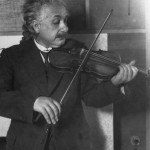Subscription Center


December 13th, 2012 |
![]() 2
2

I remember my first day of school with such clarity that it might as well have happened last week. I was five, and I was starting in the local kindergarten, along with all the other kids my age. Except for one difference: I didn’t speak a word of English. Not a one. The only thing [...]
Keep reading »
November 20th, 2012 |
![]() 3
3

Think blueberries are your super-oxidizing, super-healthy friend? Think again. Unless you’re consuming the organic variety, you’re probably better off skipping them altogether—unless you want to be hit with so much pesticide it would make maggots and bagworms squirm and wilt. Not only are blueberries on the Environmental Working Group’s “Dirty Dozen” list—named exactly for what [...]
Keep reading »
November 12th, 2012 |
![]() 6
6

Exactly two weeks ago today, at around eight in the evening, we—along with the rest of downtown Manhattan—lost all power. One minute, blaring news and reassurances from the mayor and the utilities companies, and the next, total silence. Apparently, as I quickly learned from my still-working phone, a transformer (one of these, not one of [...]
Keep reading »
October 22nd, 2012 |
![]() 2
2

I don’t remember if I had any problems paying attention to Jane Austen’s Mansfield Park when I first read it. I doubt it, though. I devoured all of my Austen in one big gulp, book after book, line after line, sometime around the eighth grade. My mom had given a huge, bright blue hardcover, with [...]
Keep reading »
October 5th, 2012 |
![]() 6
6

The Adventures of Huckleberry Finn: one of Mark Twain’s most famous novels. In fact, probably one of the most famous English-language novels of all time, period. And certainly, one of the most frequent contenders to that elusive berth of the Great American Novel. With one caveat, that is. Many readers, reviewers, and critics over the [...]
Keep reading »
September 18th, 2012 |
![]() 4
4

In the early 1800s, the United States was on its way to becoming an established nation on the global stage. It had won its independence, was forging stronger diplomatic and commercial ties with its European counterparts, and was expanding rapidly on its own territory. And it certainly didn’t hurt national solidarity to have the battle [...]
Keep reading »
September 5th, 2012 |
![]() 6
6

In the summer of 1954, 22 young boys were invited to spend some time at a summer camp. The site was to be an isolated, densely wooded stretch in the Sans Bois mountains, in southeastern Oklahoma, where two cabins—far enough apart that they were beyond seeing or hearing distance of one another—would be put at [...]
Keep reading »
August 16th, 2012 |
![]() 7
7

Nobel Prize-winning physicist Albert Einstein is one of the world’s most famed scientists, a man whose thinking has revolutionized physics and whose influence to this day extends far beyond his chosen field. And yet, he is also one of the leading proponents of those less precise, more ineffable and indescribable parts of the human mind [...]
Keep reading »
August 10th, 2012 |
![]() 33
33

There’s a certain allure to the elegance of mathematics, the precision of the hard sciences. That much is undeniable. But does the appeal mean that quantitative approaches are always germane? Hardly—and I doubt anyone would argue the contrary. Yet, over and over, with alarming frequency, researchers and scholars have felt the need to take clear-cut, [...]
Keep reading »
Thursday 26th July saw the launch of SciLogs.com, a new English language science blog network. SciLogs.com, the brand-new home for Nature Network bloggers, forms part of the SciLogs international collection of blogs which already exist in German, Spanish and Dutch. To celebrate this addition to the NPG science blogging family, some of the NPG blogs are publishing posts focusing on “Beginnings”. Participating in this cross-network blogging festival is nature.com’s Soapbox Science blog, Scitable’s Student [...]
Keep reading »